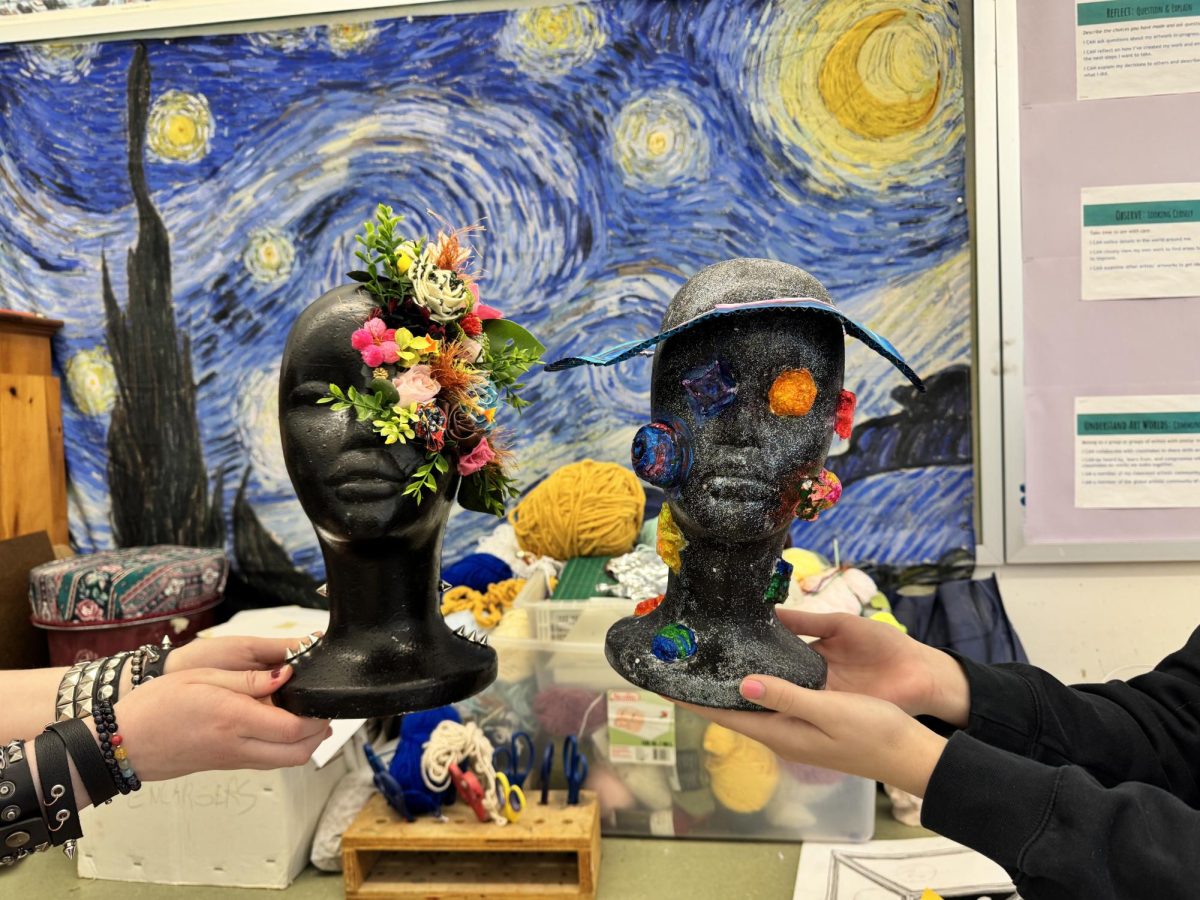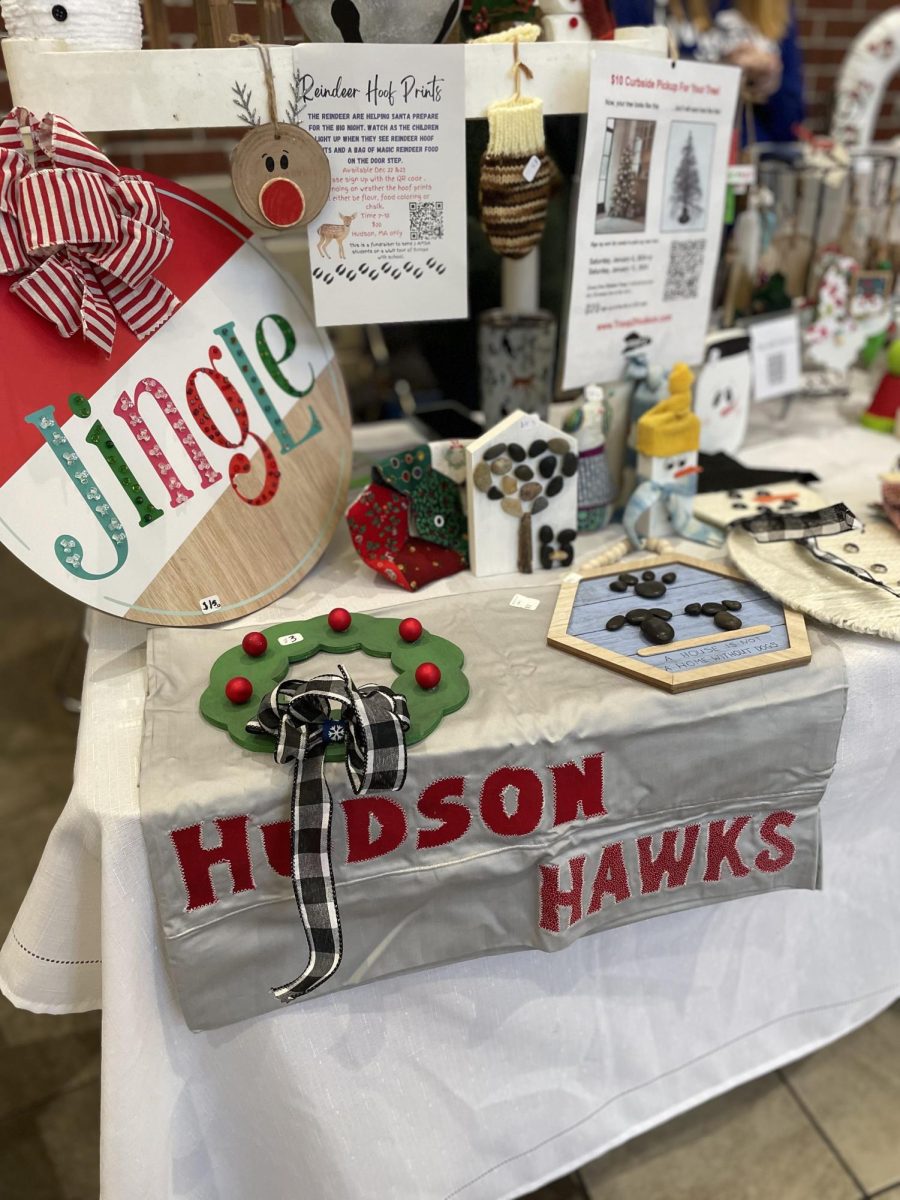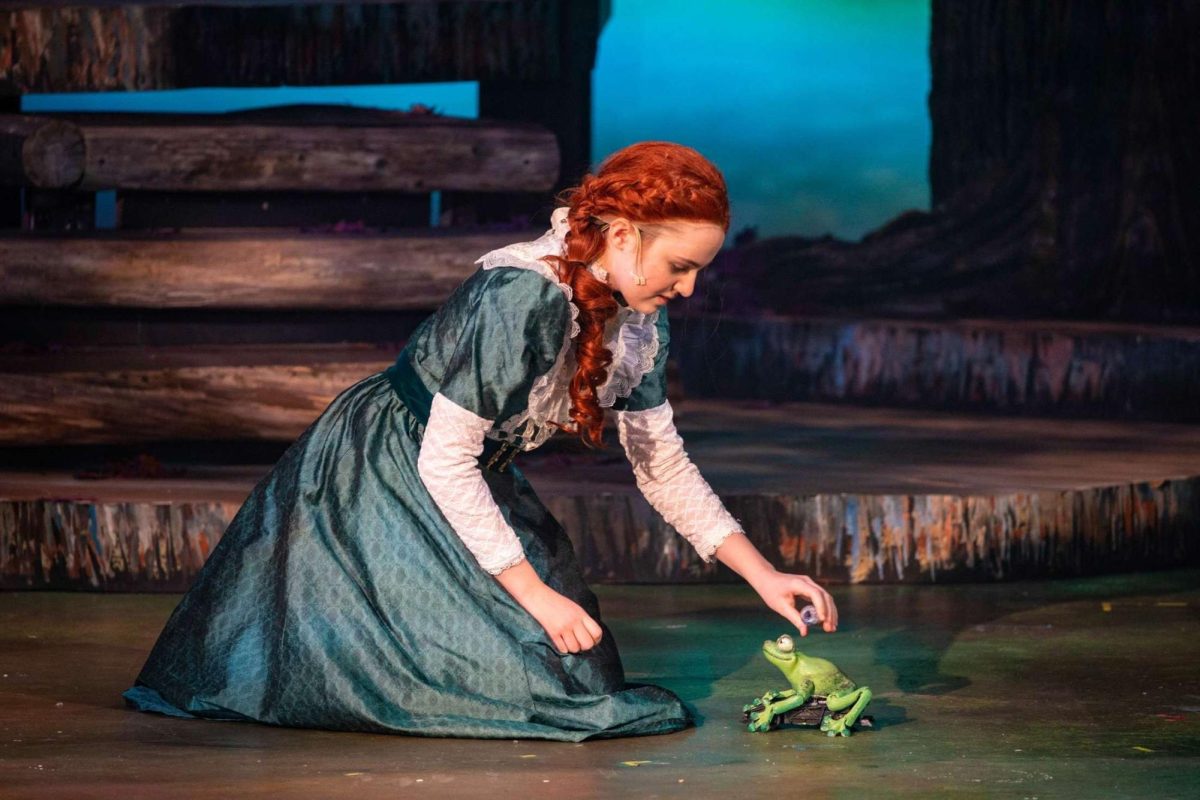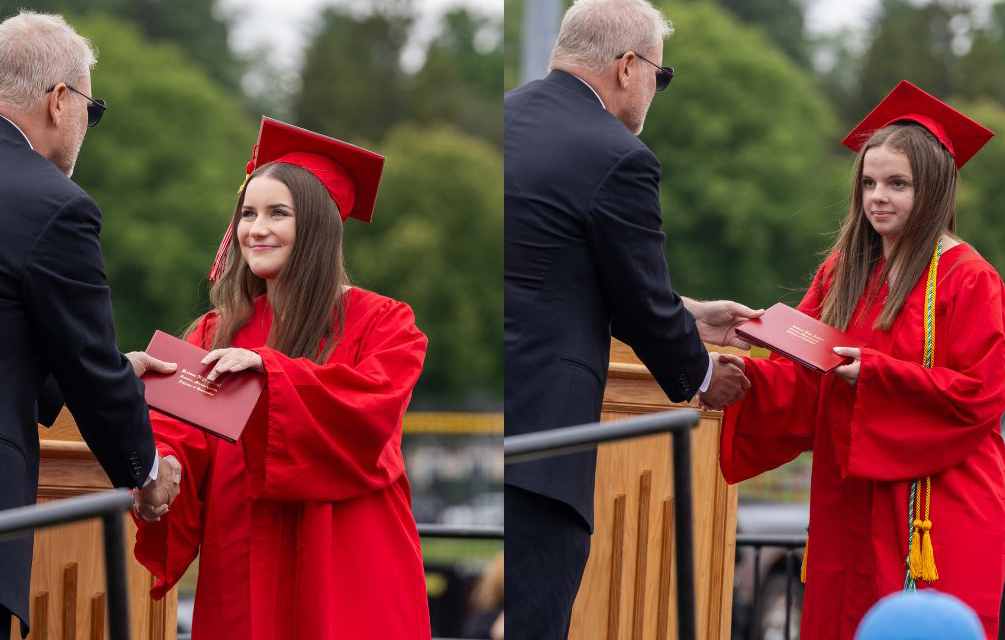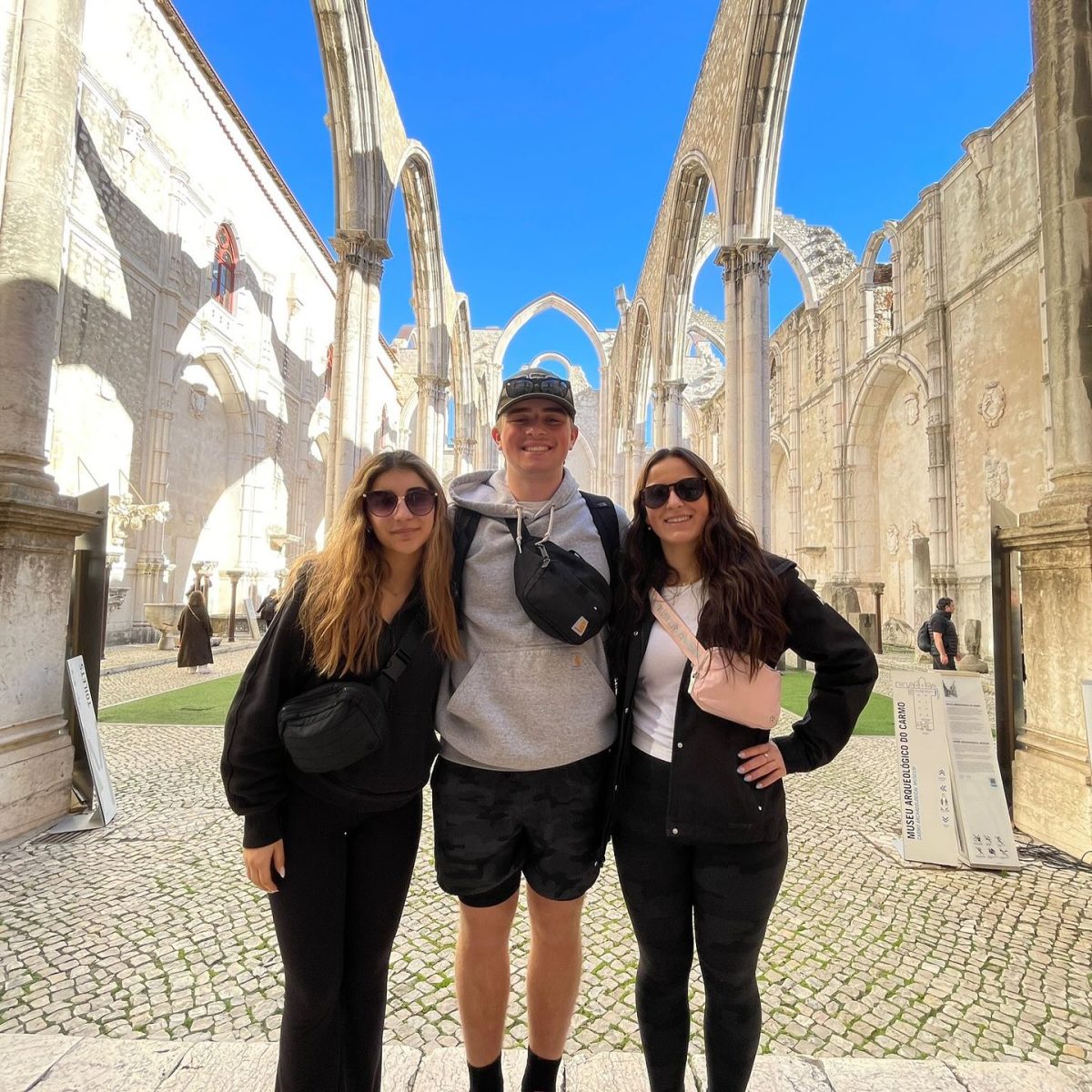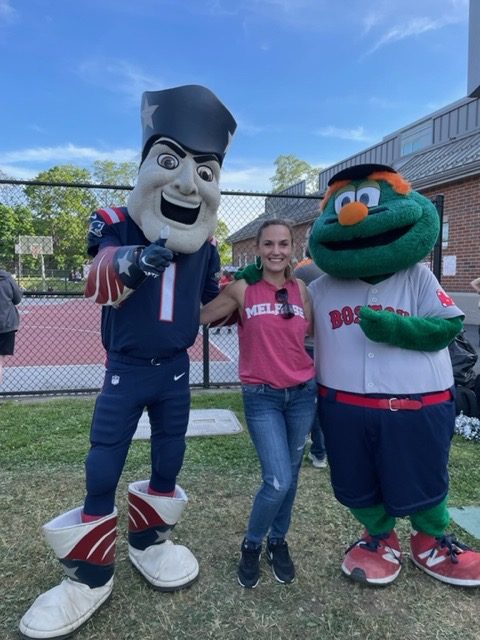by Dakota Antelman

Less than one month after Hudson Public Schools announced they were cutting the fourth-grade band program, the key facilitator of that program, the River’s Edge Arts Alliance (REAA) also announced they were “at risk.” Though the REAA did survive the summer, band students and directors have entered this school year fearing for the larger institution of band programs in Hudson.
The REAA has been a pillar of the Hudson arts community since its founding in 1995. The Arts Alliance has provided lessons in music, theater, and visual arts for scores of local students and adults for over two decades. The group works closely with Hudson Public Schools in particular and operates under a mission to preserve arts in schools. Furthermore, they work to provide a community for artists to showcase their abilities.
Over the summer, however, the REAA made a frantic plea to the community at large. Due primarily to thinning grant money, the directors of the REAA deemed their organization “at risk.”
The situation had been a tenuous one for several years. Executive Director and longtime Hudson resident Lynne Johnson described the situation she faced when she first took the job as such.
“We dove into the finances [in 2012], and I was told we were probably going to have to close the doors,” she said. “I said, ‘No, not on my watch. We’re going to keep going.’ We sort of had to spend some money to make money. It was going along at a great pace, but it needed a boost. It was scary. I honestly thought we were going to close.”
This past summer, Johnson and her colleagues opted to open a Go Fund Me page with an attached letter that detailed their plight. A goal was set to raise $30,000 by the end of the summer.
Reaction was swift as many within the arts community in Hudson rallied around the fundraising effort. Parents echoed the Arts Alliance’s plea for donations on social media. Likewise, several businesses in Hudson wrote out substantial donations to the Arts Alliance. Perhaps the most notable of those donations came early in the effort when Rail Trail Flatbread entered a $1,000 contribution into the Go Fund Me campaign.
“It just showed up,” Johnson said of the Rail Trail donation. “They were doing some renovations and decided they wanted to do something to give back to the community. I thanked them personally for donating to us. I thanked everyone who donated.”
The Arts Alliance reached their $30,000 goal by the end of July and was able to breathe a sigh of relief. Johnson said that the money raised over the summer will be enough to get the organization through their 2015 season, buying them time to further reevaluate their fundraising strategy for the future.
But even as the money rolled in, Johnson said that the atmosphere at the Arts Alliance remained tense. She said it was that tension and widespread insecurity that helped drive the group to save itself.
“We didn’t want it to end,” she said. “It caused a creative spin on the board and made everybody sit up and say, ‘We’ve got to make some stuff happen here.’ I think it was actually a positive force.”
Elsewhere in the community, the economic struggles of both the Arts Alliance, and the Hudson Public School District it works closely with, worried many.
Roughly one month before the Arts Alliance called for money, the Hudson Public School District made substantial cuts to their programming. As part of the $750,000 in cuts, Superintendent Jodi Fortuna announced that the fourth grade band program had been eliminated. The Arts Alliance, which had long helped provide lessons and concert opportunities for fourth graders, stepped in to preserve what they could of the program. The Arts Alliance would continue to provide lessons, but it would be unable to provide consistent performance opportunities.
Needless to say, their continued work even after the school system cut funding for the band earned Fortuna’s praise.
“We’re in a pretty great town where we have the Arts Alliance who will continue to offer the after school lessons for kids,” Fortuna said in an interview in July. “We’re so lucky with that.”
Unfortunately, as the year has started, the harsh reality of the cuts became clear. With less performance  time and the relegation of the band program to an extracurricular setting, enrollment in fourth grade band lessons dropped from 40 students in the 2014-2015 school year to just 10 students this school year.
time and the relegation of the band program to an extracurricular setting, enrollment in fourth grade band lessons dropped from 40 students in the 2014-2015 school year to just 10 students this school year.
Suddenly, large numbers of students, who otherwise would have begun taking band classes in fourth grade, will not begin until fifth grade. That therefore forces band directors across the town to reorganize their curriculum to accommodate for students with one fewer year of experience than was previously normal.
The curriculum change has been felt immediately.
Drew Bowler, a senior trumpet player for the high school band, has a younger sister who is currently playing in the fifth grade band.
“It’s interesting because from the high school perspective, we won’t see the difference for a couple years, but already my little sister sees how things are different,” he said. “The classes for her are different now. It’s changed how her band performs as well.”
Hudson High School Band Director Jason Caron does not take situations like that lightly.
“I was not happy; I’ll be very honest about that,” Caron said. “The way I look at it, we have worked hard to build a curriculum that starts in grade four and continues through grade twelve. In my opinion, we’ve lost a year of curriculum. That makes me worried because in a couple of years we’re going to really feel it here at the high school.”
Loss of experience is not the only problem plaguing the REAA and the band programs it helps run. Lynne Johnson fears that the enrollment drop between last year and this year could have a ripple effect at the high school level.
“They don’t start band until 5th grade,” she said. “Now that the whole system is changed, do they even start at all? It might trickle up, and by the time they [the current fourth graders] get to the high school, the band might be much smaller.”
Caron asserts that a shrunken band limits the field of songs he and his band have to choose from.
“The model is that you have a full complement of instruments,” he explained. “When I don’t have a tuba player, for instance, that’s a problem because every piece of music we play has a tuba player. What you then do is rewrite it for another instrument, or find a piece where you can leave it out, or you find another student who you can recruit to start as a beginner as a high school student. Those are really your three options. So really when you’re dealing with the vast majority of literature having a complete instrumentation, it’s a real challenge.”
Overall, the struggles of the past summer, both by the Hudson Public School District and the River’s Edge Arts Alliance, have put arts in Hudson in a state of economic instability. There remains lingering fear that further programs could be cut should either the school district or the REAA again run into trouble.
Johnson, who is moving to Cape Cod in December, makes no illusions of security. She says that the Arts Alliance could be needing money in the near future, only then, she says, Go Fund Me will not be an option.
As for the school district and the band programs in it, Jason Caron said this year could entail further reorganization and amendments to the curriculum.
“We have essentially the same people in the same roles, so we can still work together,” Caron said. “But the rules have been changed about how we can work together. I think we just need to figure out what our roles are and how we are going to work together.”
Overall, this summer has left many within the arts community feeling weary and scared for the work they love — providing arts as a part of a full education to the community.

